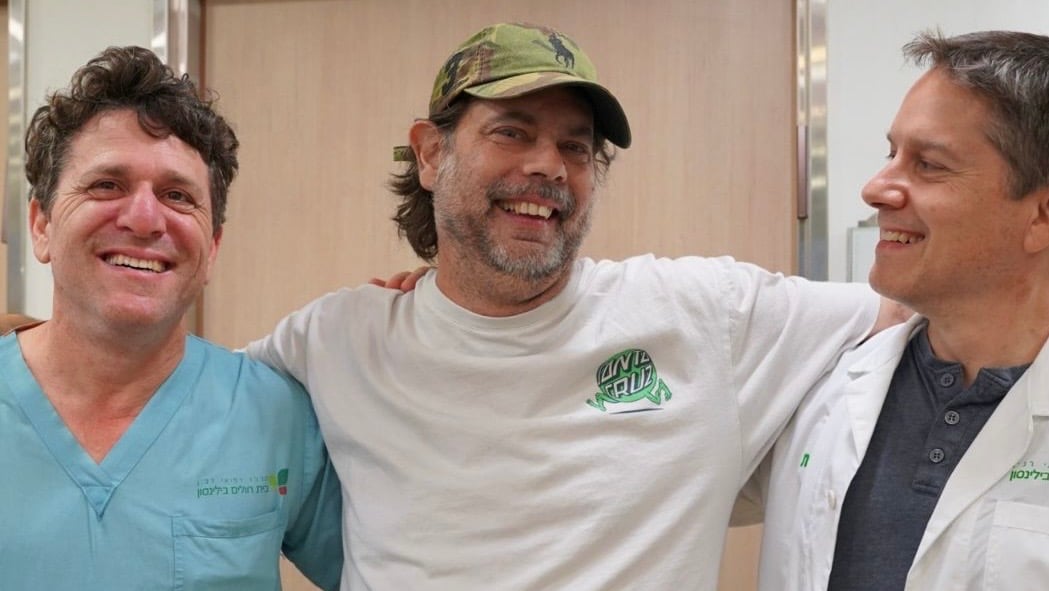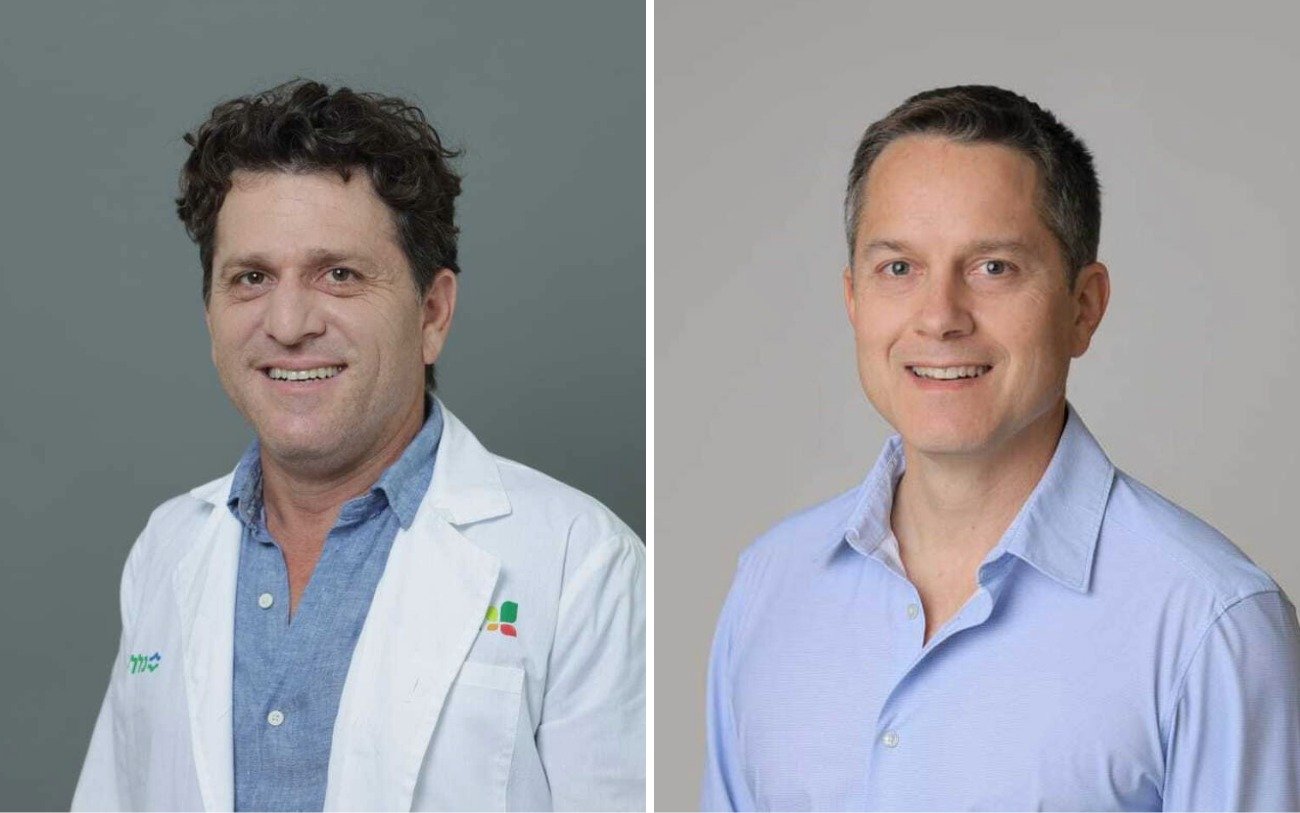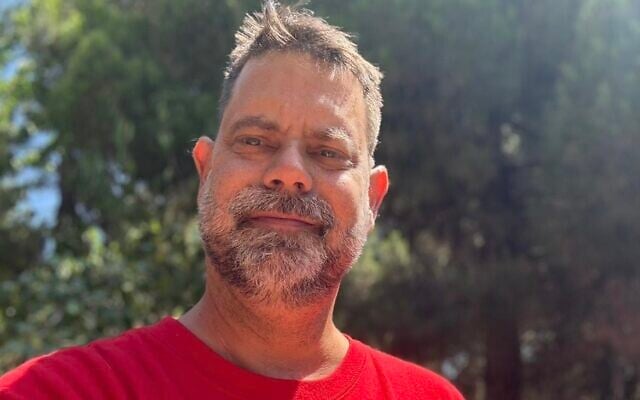



A team of Rabin Medical Center doctors successfully performed an emergency mitral valve repair procedure on a heart transplant patient, a procedure that has been previously documented only twice in patients after heart transplantation worldwide — and never before attempted on a patient in cardiogenic shock.
Simon Fischler was admitted to Rabin Medical Center’s Cardiac Intensive Care Unit two months ago while suffering from severe heart failure and cardiogenic shock, a condition caused by the inability of the heart to pump sufficient blood for the needs of the body.
Fischler, 47, already had an unusual medical history. At age 14, due to severe disease of his heart disease, he had already received a heart transplant.
Once he arrived at the hospital, “Simon had deteriorated acutely and, in fact, presented to us as an urgent catastrophe,” said Prof. Leor Perl, head of the hospital’s Catheterization Institute, who recently spoke to The Times of Israel by teleconference from Kyoto, Japan. “The myocardium, the muscle of the heart, stopped working, and the mitral valve, the one that divides the two left sides, the left atrium from the left ventricle, had started to leak severely.”
Perl said that Fischler was “crashing.”
“His blood pressure continued to drop and we decided to bring in all the team and try to do something that was the last resort,” Perl said.
Together with Dr. Amos Levy, a senior physician from the Catheterization Lab, Dr. Yaron Shapira, head of Echocardiography, Dr. Ben Cohen, senior physician from the Echo Lab, and Dr. Ben-Ben Avraham, head of the Heart Failure Service, the doctors performed the emergency procedure.

Approaching the heart through the femoral vein, the team reached the heart, crossed from the right side to the left using a special needle to perform the puncture in the septum, ultimately carrying out the mitral repair in the beating heart in the least invasive way possible.
“Technically, we knew it was very successful immediately,” Perl said. “But the effect is sometimes unpredictable. It doesn’t always work, regardless of your skills and preparation, because things happen. It’s a biological system.”
Fischler improved dramatically over the next few hours. The following day, he was extubated and breathing on his own. Two days after that, Perl said, “he got up and was released from the hospital. So we were really happy.”
“We all knew the patient intimately because he was treated for years by our heart transplantation and heart failure team,” Perl said. “We are very close to our patients, especially those who have been treated for so many years. We know his family as well, and hopefully, he’s got many years ahead of him.”
“I am very grateful, very grateful to the team of doctors,” said Fischler, speaking recently to The Times of Israel from his house in Kibbutz Elrom in the Golan Heights.
He had been under the care of the heart failure service of the Rabin Medical Center in Petah Tikvah and had survived for decades longer than his doctors ever predicted.
“But I knew the day was going to come when I’d have problems,” he said.
The Israel Heart Society estimates that there are about 180,000 heart failure patients in Israel, or almost 1.8% of the country’s 10.1 million citizens. When heart failure worsens and cannot be controlled through advanced drug therapy or surgical intervention, the option of a heart transplant is considered.
According to data from the National Transplant Center, between 30 and 40 heart transplants are generally performed in Israel each year. Currently, about 97 people are waiting for heart transplants.
About half of all people who receive a heart transplant live more than 10 years after the procedure. Advances in medicine and transplant care mean more and more people live 20 to 30 years or more.
In May, the first two artificial hearts were successfully implanted in Israel. The first was at Hadassah Ein Kerem Hospital in Jerusalem, and four days later, a second successful artificial heart transplant took place at Sheba Medical Center in Ramat Gan.
“I’ve been very lucky to have a heart that meshed as well as it did with my body for as long as it has,” said Fischler.
It’s “very difficult to put into words everything the doctors did for me,” he added. “It’s just a miracle.”

